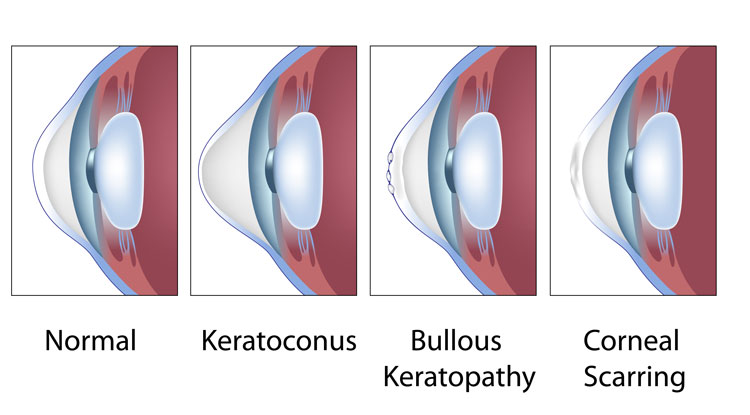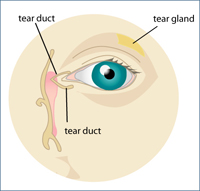Cornea
Western Pennsylvania’s Premier Corneal Specialists
Glaucoma-Cataract Consultants are a multi-specialty ophthalmology practice serving patients in Pittsburgh, Mt. Pleasant, Charleroi, and the surrounding communities.
What is the cornea of the eye?
The cornea is often referred to as your window to the world. The cornea is the dome-shaped structure on the front surface of your eye. Irregularities in the curvature of the cornea can cause many eye conditions. These include nearsightedness, farsightedness, or astigmatism. They are treatable with LASIK or other refractive procedures. When these corrective vision procedures get performed, the cornea is then reshaped permanently.
Why is the cornea important?
The cornea contributes 65 to 75 percent of the eye’s focusing power. The cornea controls the way that light enters into the eye. When light strikes the cornea, it refracts and bends the incoming light onto the lens.
If the cornea has an irregular shape, it affects how light is able to bend and refract. This is what causes refractive errors and less than optimal vision.
If the cornea gets injured or damaged, your eyesight is affected. The cornea is a delicate part of the eye, and may need to be treated separately from the rest of the eye. When left untreated, a damaged cornea could result in vision loss.

Corneal Diseases
A common corneal disease is Keratoconus. Keratoconus occurs when the cornea develops a thin structure and starts to bulge out like a cone. If left untreated, Keratoconus can degrade your vision.
When Keratoconus is managed, most patients can lead a normal life. This is thanks to treatments like corneal transplant surgery, glasses, or special contacts.
Keratoconus Symptoms Include:
- Blurred vision
- Poor night vision while driving
- Double vision
- Frequent eye rubbing
- Halos and glare around light
- Frequent changes in eyeglasses or contact lens prescriptions
Keratoconus Treatment Options
A corneal transplant becomes the best option for a patient if other treatments fail. These include hard contact lenses or prescription glasses. When they no longer help, your doctor may suggest a corneal transplant. Keratoconus is one of the most common reasons a corneal transplant gets recommended.
When a patient has Keratoconus, they may need a corneal transplant. Corneal transplants, also known as corneal grafting, are a common procedure.
During a corneal transplant, the damaged cornea gets replaced by donated corneal tissue. One of the preferred methods when performing a corneal transplant is Descemet’s Stripping Automated Endothelial Keratoplasty (DSAEK).
Dry Eye Syndrome
Do you suffer from dry or irritated eyes? You may be experiencing the effects of dry eye. There are many causes of dry eye. These can include aging, diabetes, rheumatoid arthritis, and other medical conditions.
The good news is that dry eye is treatable! Our team at Glaucoma-Cataract Consultants uses only the latest state-of-the-art technology. Whether you have dry eye and need treatment, or are looking for a diagnosis, we can help!
Dry Eye Symptoms Include:
- Scratchy sensation in your eyes
- Sensitivity to light
- Redness
- Scratchy sensation in your eyes
- Mucus in or around your eyes
- Sensitivity to light
- Redness
- A sensation of having something in your eyes
- Contact lenses are uncomfortable
- Poor night vision while driving
- Blurred vision
Dry Eye Treatment
Each case of dry eye is as unique as the patient suffering from this condition. Some of the available treatment options include Restasis, dry eye vitamins, and eye drops. Patients with dry eye may also benefit from flaxseed oil tablets or oil, and punctal plugs.
Punctal plugs are best for patients who are producing low quality tears that don’t stay in their eyes. These plugs are inserted to help your eyes hold tears in for longer.
Talk to a doctor or physician at Glaucoma-Cataract Consultant about a treatment plan! We work with all patients to come up with a plan that is custom to your eyes and needs.
Over the counter solutions like artificial tears or eye drops may not be enough to give you the relief you need. That’s where Glaucoma-Cataract Consultants can come in!
If your dry eye or keratoconus is bothering you, call the experts at Glaucoma-Cataract Consultants! Request your appointment online with the Western Pennsylvania cornea specialists!

